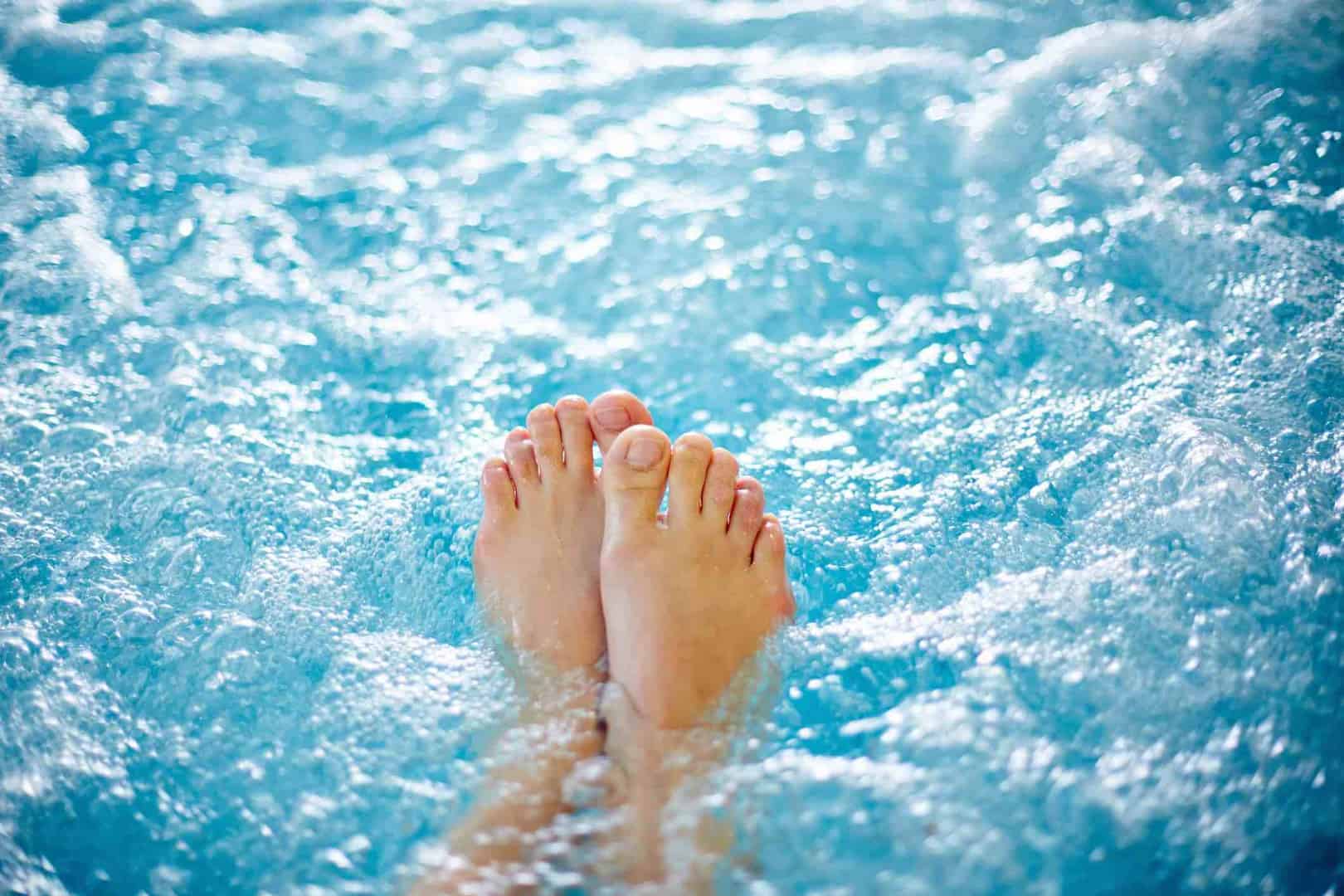
It’s a question we get a lot. “Can I use regular salt in my saltwater spa?” And the answer is: No!
The “why” is a little more complicated. But thankfully Fronheiser Pools has all the information you need to keep your saltwater spa looking and performing it’s best.
Put simply, table salt, rock salt and ice melt — all commonly available forms of salt — contain impurities and additives that can damage the electrode plates in your chlorinator. Instead, you’ll want to use either refined mineral salts or additive-free food grade (NOT table salt) salts. These contain the levels of sodium chloride you need to achieve the proper chemical reactions for clean, healthy water.
Salt systems are a wonderful way to keep your spa sparkling and sanitized, without using a lot of chemicals. They’re especially great for people with sensitive skin, who report little-to-no irritation after using a saltwater hot tub.
People are often surprised to hear that what keeps the water in a saltwater tub clean and safe to use is … chlorine. It’s just that with a saltwater tub, you don’t add the substance to your water. You generate it.
When the saltwater passes over the electrified titanium or platinum plates in your saltwater generator, it creates hypochlorous acid – chlorine. When the chlorine re-enters the water, the sanitizing begins. Eventually, it converts back into chloride, recombines with the sodium in the water, and the process begins again!
And that’s a great thing because chlorine does an amazing job keeping bacteria and other harmful stuff out of your water.
In addition to the right type of salt to use, there are a few other things you need to bear in mind when it comes to saltwater spa ownership:

Providing quality products for your outdoor living lifestyle since 1965.
©2020 Fronheiser Pools. All rights reserved. | PA Home Improvement Registration #PA005652 Privacy Policy

Now offering Curbside Water Testing by Appointment Only!
Visit us online to schedule your 15-minute water testing consultation.
Simply select your store location and choose from the appointment slots available.
Bring your water test bottle with a sample of your pool or spa water to your scheduled appointment. Please label the test bottle with your name, and drop it off at the water testing counter.
Thank you for being a loyal Fronheiser Pools customer!
Would you like to receive a free product brochure?